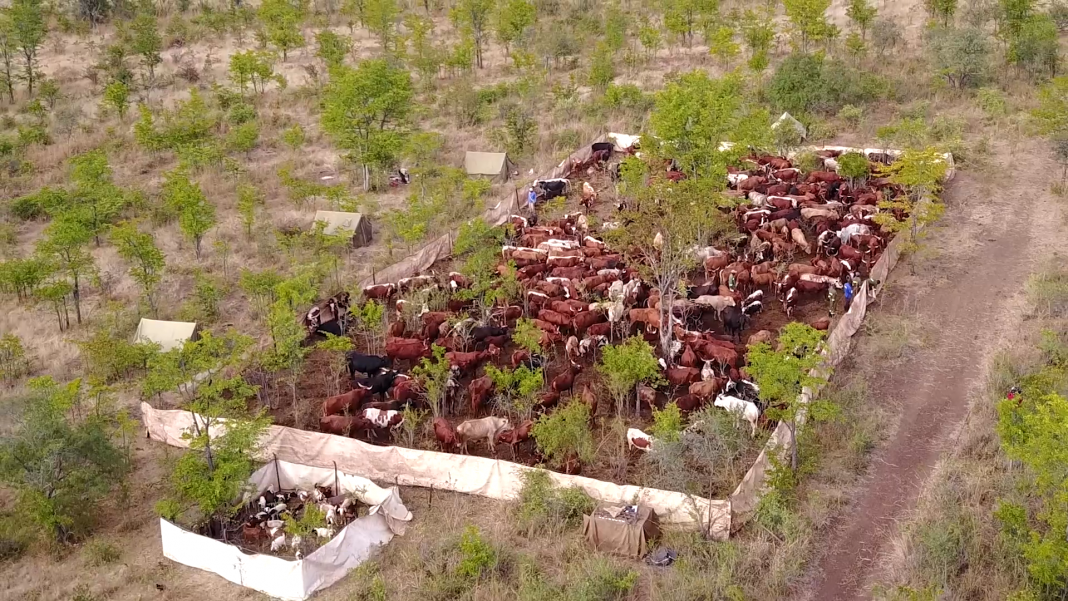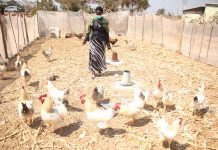It’s still early days, but something quite remarkable is happening in certain agricultural lands in Zambia. It is already protecting grazing lands, reducing smoke pollution and boosting farmers’ incomes.
It’s called holistic land and livestock management, and it has the potential to revolutionise agricultural practice not just in Zambia, but throughout Africa.
Here’s how it works.
Instead of being allowed to roam the grasslands and graze at will, which causes land degradation, cattle – up to 500 at a time – are herded into carefully demarcated grazing areas. The impact of their hooves loosens the soil, while the discharge of dung and urine fertilises it. At night, the cattle sleep in a temporary paddock, and are released into the grazing areas again during the day. The time during which they graze different areas is carefully planned to ensure plants and grasses have time to recover before the cattle return to the area.
The concept is the brainchild of Allan Savory, a world-renowned ecologist, environmentalist and farmer
The results are spectacular: the areas where the cattle graze are fertilised naturally, creating rich soil for crop planting. This does away with the need to burn the land to prepare it for planting, which is a common agricultural method throughout Africa.
The environmental benefits are equally significant. The land degradation that would have occurred as a result of the cattle grazing randomly is avoided; so is desertification of entire areas of land from burning. Best of all, there is no noxious, polluting smoke.
The concept of holistic land and livestock management was developed by Allan Savory, a world-renowned ecologist, environmentalist and farmer from Zimbabwe. It is the subject of a fascinating 10-minute video entitled “Nature’s way can also pay – saving our grasslands and boosting farmers’ incomes”. It has already been viewed 250 000 times in Zambia since being posted about a month ago.
In it, we learn how the concept was born out of Savory’s concerns around land degradation from excessive cattle grazing, as well as excessive burning of land.
“We are burning, in Africa, every single year, more than one billion hectares,” he says. “We justify the burning as scientists because it does remove the deal material and allows the plants to grow. [But] we cannot burn it without causing desertification and climate change.”
Like all groundbreaking ideas, Savory’s solution – to use livestock to mimic nature – is obvious with hindsight.
A good example of how the concept is working in Zambia can be found in the Southern province town of Choma, where the holistic land management system has been implemented in a community with the assistance of a non-profit organisation, Njovu Zambia.*
Community farmers there report good harvests. The quality of the maize produced in a field impacted by cattle, compared to one that is not, is clearly visible. Grass is now growing where previously there was none. There are even fewer conflicts in the community because animals are not grazing in other people’s gardens or fields.

“In the short time that we have introduced this system, we have found that the results are very very good,” says a cattle herder.
The Choma experience is being promoted as an example to farmers in other parts of Zambia, because it has been shown to be such a profitable and sustainable way forward for land rehabilitation.
To spread his philosophy of holistic management, Allan Savory has started the Africa Centre for Holistic Management on a piece of land he owns in Zimbabwe, close to the Victoria Falls. The Centre has trained people from organisations all over Africa, including Zambia. First Quantum Minerals (FQM), for example, has sent a number of people from the Kalumbila area, where its Sentinel Mine is located, for training. The company is funding the roll-out of the programme in the surrounding farmlands of North-Western province, so that mine land and agricultural land can coexist together sustainably, instead of being in competition with each other.
This growing acceptance of the concept of holistic land management is exciting news for the Centre, which has ambitious long-term objectives of instilling this practice across Africa’s grasslands. “In ten years’ [time], I would like to see farmers having the knowledge how to implement holistic and livestock management in their own communities,” says Simon Garikayi, the Centre’s training director.
Holistic land management holds out the promise of a great future for Zambian farming.
* Njovu Zambia is one of the implementing partners of the project “Appropriate and stable fodder production for dairy animals on small-scale farms”. The project is supported by the Czech Development Agency and implemented by Mendel University in Brno, Njovu Zambia and Geotest s.r.o..
See also: Knowledge transfer pays off


























